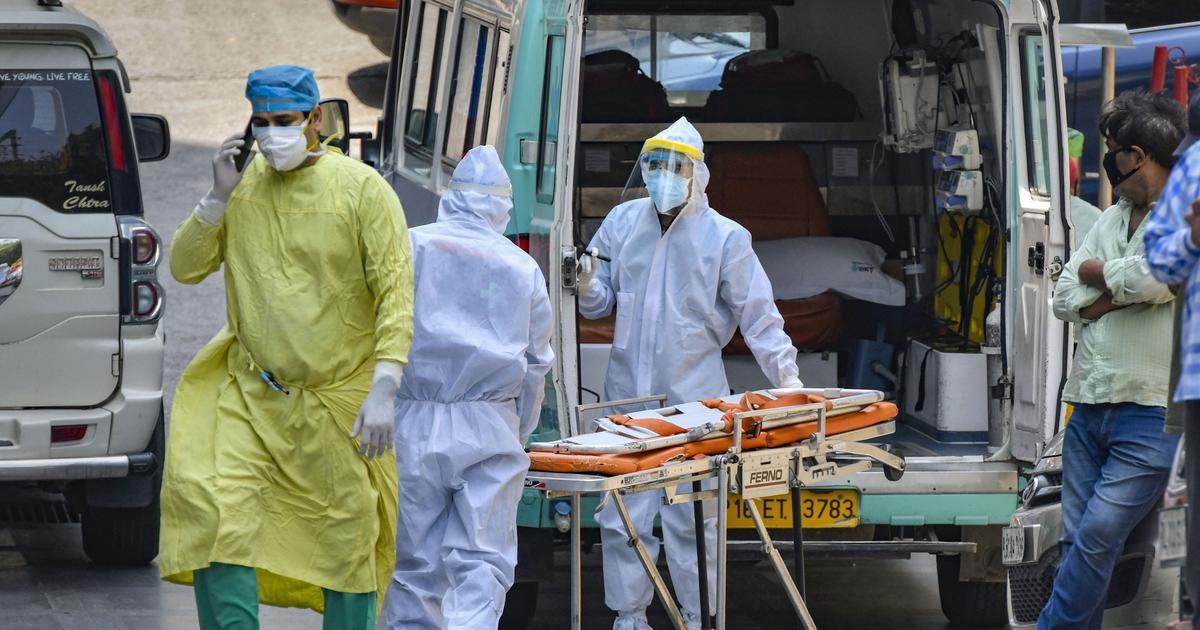World
Children face severe complication, death risk from COVID-19

Researchers, including one of Indian-origin, have revealed that children, teenagers and young adults are at greater risk for severe complications from COVID-19 and those with underlying health conditions are at even greater risk of death.
“This study provides a baseline understanding of the early disease burden of COVID-19 in pediatric patients,” said study researcher Hariprem Rajasekhar from Robert Wood Johnson Medical School Department of Pediatrics in the US.
“The findings confirm that this emerging disease was already widespread in March and that it is not universally benign among children,” Rajasekhar added.
Published in the journal JAMA Pediatrics, the study followed 48 children and young adults – from newborns to 21 years old — who were admitted to pediatric intensive care units (PICUs) in the US and Canada for COVID-19 in March and April.
More than 80 per cent had chronic underlying conditions, such as immune suppression, obesity, diabetes, seizures or chronic lung disease. Of those, 40 per cent depended on technological support due to developmental delays or genetic anomalies.
More than 20 per cent experienced failure of two or more organ systems due to COVID-19, and nearly 40 per cent required a breathing tube and ventilator.
At the end of the follow-up period, nearly 33 per cent of the children were still hospitalised due to COVID-19, with three still requiring ventilator support and one on life support.
Two of the children admitted during the three-week study period died.
The researchers said they were “cautiously encouraged” by hospital outcomes for the children studied, citing the 4.2 per cent mortality rate for PICU patients compared with published mortality rates of up to 62 per cent among adults admitted to ICUs, as well as lower incidences of respiratory failure.
The study noted that doctors in the New York metropolitan area are seeing what appears to be a new COVID-related syndrome in children.
“The idea that COVID-19 is sparing of young people is just false,” said study co-author Lawrence C Kleinman from Rutgers University in the US.
“While children are more likely to get very sick if they have other chronic conditions, including obesity, it is important to note that children without chronic illness are also at risk. Parents need to continue to take the virus seriously,” Kleinman added.
Recently, another study, published in the journal Frontiers in Pediatrics, also revealed that gastrointestinal symptoms such as diarrhoea, coupled with a fever or history of exposure to COVID-19, could indicate coronavirus infection in children.
The US currently accounts for the world’s highest number of COVID-19 cases and deaths at 1,347,388 and 80,397, respectively, according to the Johns Hopkins University.
World
Lockdowns in China Force Urban Communities to Defy Censorship and Vent Frustration Online

Shanghai’s rich middle class is leading a wave of online dissent over the strict and prolonged lockdowns imposed in various parts of the country. Chinese internet censorship is struggling as patience is wearing thin in many urban centers, coming up with creative forms of online protests.
Social Media Posts Revealing Lockdown Tension in Shanghai
Drawn-out lockdowns are nothing new in China as authorities insist with the nation’s zero-Covid policy since the start of the pandemic. Currently over This time around, however, metropolitan areas like Shanghai are increasingly difficult to keep quiet, given that its more than 25 million residents have seen weeks of total isolation along with food shortages and many other service interruptions.
Dozens of towns and reportedly over 300 million Chinese citizens have been affected by lockdowns of different severity. As expected, urban netizens have been most outspoken over their difficulties by finding creative ways to get around state censorship and bans placed on topics, news comments and spontaneous campaigns.
Shanghai residents have been using mobile proxies and hijacking seemingly unrelated hashtags to talk about healthcare issues, delivery failures and the overall severity of their situation. The “positive energy” that the Chinese government wants to transmit during the recent prolonged series of lockdowns does not come naturally to those counting food supplies and online censors are working hard to filter words, trending topics and undesired social media sharing.
WeChat groups and message threads are under constant monitoring. Posts questioning the zero-Covid approach have been quickly deleted, including by leading Chinese health experts like Dr. Zhong Nanshan. Video footage is soon censored and protests and investigations are quickly made to disappear.
Where this has not worked, officials have exposed banners with warnings and outright threats like “watch your own mouth or face punishment”, while drones have been patrolling the city skies. Yet, if anything, this has led to further tensions and unspoken confrontation with Shanghai’s educated and affluent middle class.
Creative Online Solutions Harnessing Civic Energy
Announcements by Chinese social media that they would be publishing the IP addresses of users who “spread rumors” have not helped either. Tech industry research has shown that much of Asia’s tech-savvy population has a habit of using mobile proxies and other privacy tools, quickly finding workarounds to browse the internet freely and talk to the world about the hottest topics.
The sheer volume of forbidden posts is already a challenge for the very censorship system, experts explain. Unable to track all trending hashtags, state workers overlook topics that speak about the US, Ukraine or other popular news. Linking human rights elsewhere to their situation, Chinese online dissidents establish their informal channels and “hijack” the conversation to share personal or publicly relevant information about the Covid suppression in their town.
Sarcastic and satirical posts still dominate. Others hope to evade the censors by replacing words from famous poems or the national anthem. One thing is certain – social media, when harnessed with the right creativity, has proven its ability to mount pressure on the government in even some of the most strictly controlled tech environments like China.











